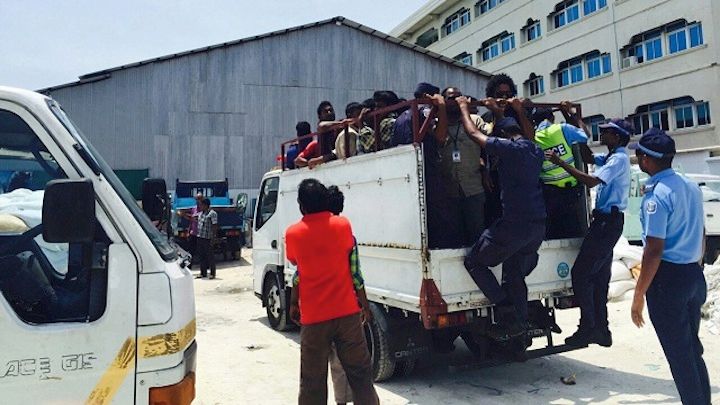Maldives taken off US human trafficking watch list
The Maldives was on the tier two watch list for the past two years due to the low rate of prosecution and inadequate and inconsistent protection for victims. A downgrade to tier three could have entailed non-humanitarian and non-trade sanctions.

28 Jun 2017, 09:00
The Maldives has been removed from a human trafficking watch list of the US State Department following the first successful prosecution and conviction of traffickers.
The Maldives was on the tier two watch list for the past two years due to the low rate of prosecution as well as inadequate and inconsistent protection for victims. A downgrade to tier three could have entailed non-humanitarian and non-trade sanctions.
According to the State Department’s 2017 trafficking in persons report, the Maldives was upgraded from the watchlist to tier two after the government demonstrated increased anti-trafficking efforts compared to the previous year.
“The government acceded to the 2000 UN [Trafficking in Persons] Protocol, launched awareness campaigns and amended its Employment Act to require employers to establish and pay employees’ salaries through bank accounts,” the report noted.
Become a member
Get full access to our archive and personalise your experience.
Already a member?
Discussion
No comments yet. Be the first to share your thoughts!
No comments yet. Be the first to join the conversation!
Join the Conversation
Sign in to share your thoughts under an alias and take part in the discussion. Independent journalism thrives on open, respectful debate — your voice matters.




